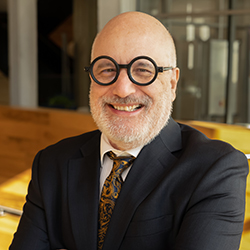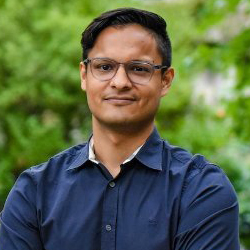Two UChicago Researchers Tapped to Lend Expertise to Cook County Commission on Social Innovation
The involvement brings scholarly insight to the group of policymakers and practitioners.
By Sarah Steimer
In an effort to grow the breadth of knowledge available to members of the Cook County Commission on Social Innovation, the group is engaging with Steven Durlauf, the Steans Professor in Educational Policy in the Harris School of Public Policy, and Robert Vargas, associate professor in the Department of Sociology and Deputy Dean in the Division of the Social Sciences.
The commission launched in April 2016, created by way of a Cook County Board of Commissioners ordinance, to serve as a resource for the county’s agencies and departments to promote a data-driven social innovation ecosystem in collaboration with other relevant parties. It also aims to serve as the county’s social innovation laboratory by bringing together a diverse representation of interests and expertise across sectors
“The commission has aldermen, figures from nonprofit organizations, people who are active in various social policies,” Durlauf says. “And its mandate is to make recommendations in terms of very fine-grain policy interventions for social innovation for Cook County.”
Durlauf was asked to speak to the commission last fall by attorney and commission Vice Chairman Marc Lane, whom Durlauf describes as “one of the most public-spirited people I've ever met in my life.” Lane was aware of the newly established Stone Center for Research on Wealth Inequality and Mobility, which is led by Durlauf, and he asked the scholar to speak to the commission on reparation policies.
“Reparations are a current and controversial policy question, whose ethical justification is obvious: Right the terrible historical wrongs done against Black people in America,” Durlauf says. “My presentation was designed to address two matters. First, how to make reparations politically feasible. Here I argued that the case for reparations should emphasize the collective shame Americans should feel over the country’s history — as opposed to emphasizing guilt, which will lead to negative reactions by those who do not feel personal responsibility for injustices. This is how I perceive Germany thinks about the Holocaust. Second, I argued that reparations policies should be evaluated in terms of how they will address persistent inequalities between Blacks and whites that are either not decreasing or decreasing so slowly as to demand interventions. Here my discussion involved identifying how historical wrongs have created permanent inequalities, so that reparations policies can be understood as breaking this.”
After his presentation to the commission, Durlauf was asked to join as a member. He says his theoretical expertise is likely to be useful to the group when assessing empirical evidence, particularly when it’s difficult to identify the probability that a policy would work.
This winter, Vargas was invited by commission member Harry Alston to present his ideas for innovating in violence prevention. He spoke to the group about work being done at the UChicago Justice Project that aligned well with a commission working group that’s pursuing a violence prevention program at Cook County Hospital.
“The approach that I take to violence prevention is one that tries to figure out how to best reconfigure systems so that we are defining the objectives and the evaluation criteria in a way that is very much informed by the community, as opposed to people who are investing in the city from afar through philanthropy or public officials who just aren't as well tapped into a community,” Vargas says.
He shared a set of projects that show the specific segments of the private sector in Chicago that have heavily invested in violence prevention and police reform and, as a result of this heavy investment, have pursued these enterprises in very particular ways that tend to focus on rehabilitating individuals — as opposed to reconfiguring systems. The bulk of his presentation, Vargas says, was a proposal to reconfigure systems of public safety by innovating through the creation of new public safety metrics that offer alternatives to relying on crime statistics to explain and evaluate the issues.
He intends to continue making himself available as a resource to the working group, and he underscored his commitment to open data.
“There are ways that these collaborations between researchers and government unfold that provide exclusive access to data for the researchers,” he says. “I want to take a totally different approach here by making the data open and transparent from the beginning, so that everyone can see the process and all of the key decisions that had to be made to construct the data in the first place, and then to ultimately release it so that we have as many people working on it as possible.”
Vargas and Durlauf both emphasized the benefits of such collaborations to all involved: The opportunity to see how their research can have real-world impacts, for example, but also the chance to engage with other perspectives.
“From a scholarly perspective, being in the bubble of Hyde Park or our respective departments or units can actually be quite detrimental to our intellectual development, it kind of warps our worldview,” Durlauf says. “Interacting with practitioners and policymakers who view the world completely differently than I do is a really great learning opportunity that I think is only going to make my research better and more impactful.”
 THE UNIVERSITY OF CHICAGO
THE UNIVERSITY OF CHICAGO



